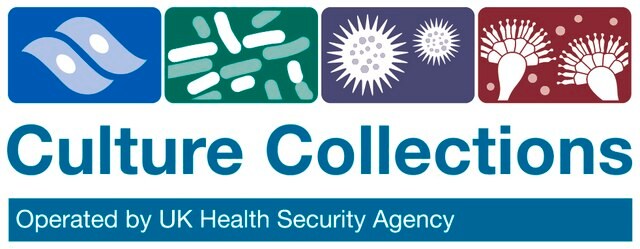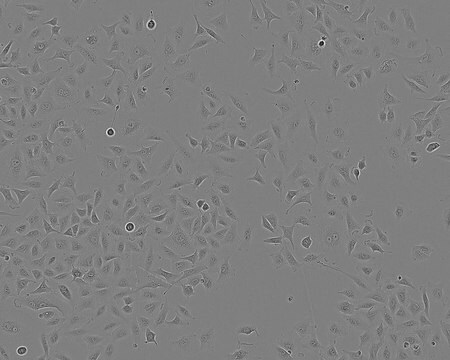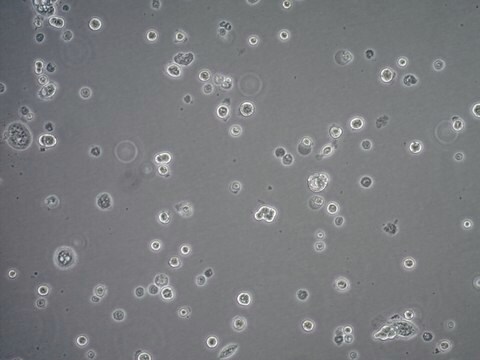Recommended Products
Product Name
AR42J, 93100618
biological source
rat pancreas
growth mode
Semi-adherent aggregates
karyotype
Not specified
morphology
Pancreas cells
products
Amylase and exocrine enzymes
receptors
Gastrin/CCKB, Epidermal growth factor (EGF), Somatostatin
technique(s)
cell culture | mammalian: suitable
relevant disease(s)
cancer
shipped in
dry ice
storage temp.
−196°C
Cell Line Origin
Cell Line Description
Application
Culture Medium
Subculture Routine
Other Notes
Choose from one of the most recent versions:
Certificates of Analysis (COA)
Sorry, we don't have COAs for this product available online at this time.
If you need assistance, please contact Customer Support.
Already Own This Product?
Find documentation for the products that you have recently purchased in the Document Library.
Related Content
We offer more than twenty ECACC pancreatic cancer cell lines of human, rat, or mouse origin, including PANC-1. Choose cells based on mutations in KRAS, TP53, SMAD4, and other key genes, or by demonstrated suitability for applications such as toxicity, xenograft models, and drug response studies.
Our team of scientists has experience in all areas of research including Life Science, Material Science, Chemical Synthesis, Chromatography, Analytical and many others.
Contact Technical Service



